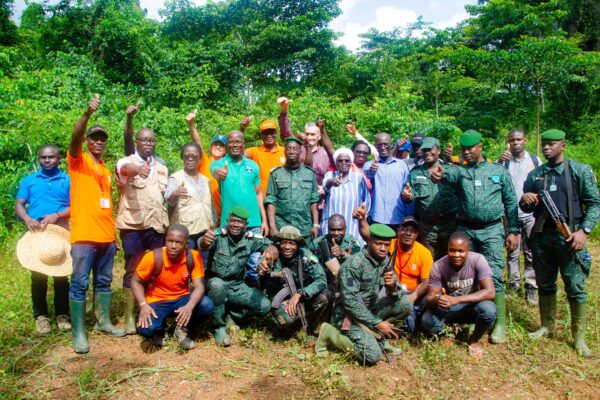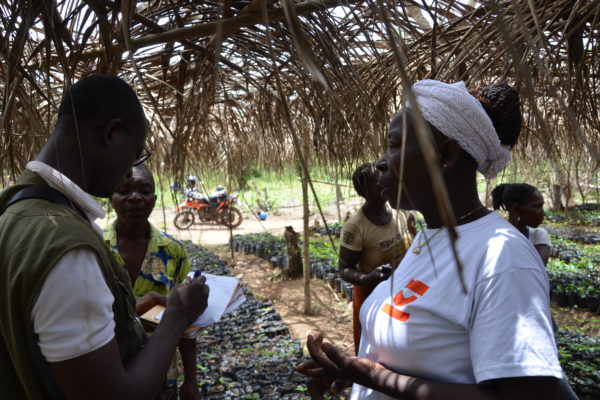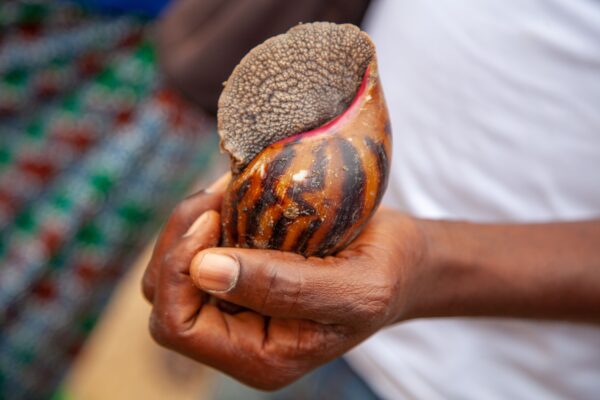To date, the COVID-19 pandemic has infected more than 3.5 million people and brought certain industries to a standstill. According to the International Labour Organization (ILO), the livelihoods of about 1.6 billion people in the informal economy could be destroyed because of lockdowns aimed at curbing its spread.
Agriculture is one such affected industry; one that relies on the informal economy. That is to say, farmers – who toil on their soil to grow our food and agricultural commodities – are facing risks not just to their lives, but to their livelihoods as well. The virus has not differentiated based on geography or economy, meaning that farmers from France and the USA are in the same basket as those in India and Nigeria.
At Earthworm, a large part of our work is talking to and helping farmers across the world. While the virus has made this more difficult, technology is helping bridge the gaps left by social distancing – the new norm of our world. Here are some stories of how our field teams are continuing to help farmers, in open defiance of a virus that forces us away from one another.
India
‘’Corona has crashed the economy of country, which will badly impact the life of common Indian farmer,’’ said farmer Narender Saharan.
Farmers we work with in Punjab and Haryana are struggling to sell their produce during the lockdown imposed by the Indian government, said Earthworm’s Gaurav Kaushik. Harvesting is also challenging with social distancing.
“For the upcoming sowing season, farmers are worried about the costs as they didn’t earn much with previous rice and cotton harvests,” he said. “We are figuring how to support these farmers in the upcoming season.”
Since we cannot visit farmers in the field, we are calling and messaging about 30 farmers daily to support them with knowledge such as plantation management, precautions to be taken during COVID-19 and guidelines issued by authorities.
“Due to Corona, wheat and mustard buying is affected badly, this will affect the sowing of next crop also,” said farmer Bansi Lal.
We are also answering any questions farmers may have, and doing a survey to find out the impact of COVID and how we can support them.
“We learn more in crisis than in comfort,” said Earthworm’s Ramchandra Phadke. “Resilience, hope and compassion are the need of time.”
Indonesia
“Facing this pandemic, farmers stay strong,” said Yulia Hardini. “All their lives, they have dealt with changes. Even when everything seems uncertain, only faith and perseverance keep them moving.”
While the Indonesian government hasn’t imposed national restrictions on movement within the country, regional restrictions apply depending on the state. The government has instead been promoting social distancing and personal hygiene.
As they live in the farming communities, our teams in North Sumatra, Riau and West Kalimantan are still working with farmers on one-on-one coaching while keeping an appropriate physical distance. However, workshops and large meetings are rescheduled to adhere to a government ban on gatherings.
“For our farmers, most of which plant oil palm, there’s no decrease in palm fruit sales,” said Lala Amiroeddin. “Some farmers in Riau sell watermelon during Ramadhan. But since COVID, there's restrictions in crossing regional borders – meaning farmers have to lower prices even though they may not break even.”
While farmers have not been significantly impacted, our field team can’t return home to their families as commercial flights and inter-state travel is restricted until June 1. This is especially painful as we are now in the Muslim fasting month of Ramadan, a time that is normally spent with family.
"I've given up (trying to find way home to Java), because all the roads are closed,” said Kasmujiono. “Even if we could go home, returning to the field would be a problem. We've decided not to return home this year, so we'll just focus on our field work, while still looking for possible opportunities out of this situation."
It’s stressful not being able to go home, said Rozikin. Both Kasmujiono and Rozikin have wives and children waiting for them back home.
“My family still has hope that I can come home,” he said. “But for now, I’ve yielded to the situation”
Ivory Coast
Like other parts of the world, our teams in Ivory Coast are experiencing the pangs of COVID-19. Field activities in Soubré have stopped until June and teams in Abidjan – the epicenter of the virus in Ivory Coast – have decided to work from home. In-person meetings have been replaced by Skype, so that we stay connected to each other.
In Soubré, where our farmer work is concentrated, there is one COVID-19 case to date. The quarantine and gasoline shortages are affecting farmers’ access to markets, meaning less income. But farmers are still striving to survive by continuing to diversify their income activities and developing tree nurseries.
“We are now analyzing data collected about the impact of our field activities,” said Stéphane Yoboué. “However, farmers phone us when they have a concern. We try to fix their problems through the phone.”
We are also trying to stay connected with our partners on the ground through a WhatsApp group, said Eléonore N’Gbesso. This group includes palm oil company staff, farmer cooperative managers, field officers and farmers.
“The idea is to keep in touch,” she said. “The information shared in this group will help us strengthen capacities of the supply chain actors.”
To build capacity, we are exploring ways to launch a WhatsApp radio station, said Gerome Tokpa.
“This will allow us to share audio clips or publish short videos on social media, and produce content that is easily downloadable and can reach out many rural people,” he said.
Malaysia
With our field office temporarily closed and farmer gatherings postponed until movement restrictions are lifted on May 12, the team in Sabah is reaching out through WhatsApp, as well as telephone calls to older farmers who do not use WhatsApp.
Since 2017, our team has formed WhatsApp groups to link farmers to each other, as well as other important actors like the Sabah Wildlife Department and MPOB (Malaysian Palm Oil Board). Now, more than ever, these groups are helping share important information such as government aid, and tips on health, safety and diversifying income.
“Because of the crisis, many farmers are starting to think about their food and income security by planting food crops like cassava, corn and other vegetables,” said Dehya Mahadin. “Others plan to diversify income by building swiftlet bird houses, as demand from China for bird’s nests is increasing thanks to its perceived health benefits.”
Together with MPOB, we helped about 200 farmers apply for government cash aid meant to ease the burden of those with low household income. We also helped farmers get travel permission letters, so that they could pass through police blockades to sell their palm fruit at mills.
“I always advise farmers to be patient, pray during this challenging time and fight COVID-19 until the situation goes back to normal,” said field officer Lakarim Lanika. “I also constantly remind them that farmers are entrepreneurs.”
Vietnam
Cases in Vietnam have been fairly limited thanks to early and drastic measures taken by the government in February. In fact, an entire commune of 20,000 people was quarantined at the beginning of the outbreak. But such measures seem to be working, as to date, there are 271 cases nationwide.
In Binh Thuan province where we work, one of our field officers has returned to his family 400 km in the north, while the other – who lives in the nearby Son My commune – continues to work from our field office. Limits on group gatherings mean that meetings with farmers have to be done one-on-one while practicing social distancing. In addition to helping farmers grow acacia, we are also helping members of a local acacia growing club to deliver 90 factsheets on seedling selection and land preparation to farmers in three communes.
“I am thankful for the support in visiting farmers’ nurseries, seedling order and raising awareness during COVID-19,” said Son My acacia growing club president Nguyen Cong My. “So far, 23 farmers ordered 140,000 high quality seedlings. And 30 farmers with riparian areas in need of protection have been identified.”
Ecuador and Peru
Peru and Ecuador have been among the most badly hit Latin American nations – with more than 45,000 and 31,000 reported cases respectively. This means that our field work has ground to a halt while our teams work from home.
Our field teams in the Andes are maintaining frequent communication with farmers, mills and other actors through WhatsApp, as well as phone and Skype calls. This is helping maintain relationships and momentum in our collaborations with farmers, said Richard Vaca.
“For example, in Ecuador, our team continues to remotely advise farmers who are planning and processing financial credits for new oil palm plantations,” he said. “In Peru, the team produced a short motivational video for farmers, highlighting the importance of farmers during the pandemic.”
The Andes (Ecuador and Peru)
Ecuador and Peru have been among the most badly hit Latin American nations. This means that our field work has ground to a halt while our teams work from home.
Our field teams in the Andes have frequent contact with farmers, mills and other actors through WhatsApp, as well as phone and Skype calls. This is helping maintain relationships and momentum with farmers, said Richard Vaca, who oversees our work with farmers in the region.
“In Peru, the team produced a short motivational video for farmers highlighting their importance during the pandemic; which was shared through WhatsApp” he said.
The challenge is that not everyone has access to tools like WhatsApp, Facebook, Skype and Zoom, or even an internet connection, said Román Pinedo from our team in Peru.
“For those that do, we have five WhatsApp groups with the five producer associations that supply to one of the country’s largest palm oil producers,” he said. “We use these groups to share information on the sector and on daily events.”
In Ecuador, we are helping farmers apply for credits from banks to replant their oil palm trees, Vaca said. Of late, many farmers in Ecuador have lost their oil palm crops to a disease called Bud Rot, which has no cure.
“Farmers don’t have the cash flow to invest in replacing their crops,” he said. “In this case, public banks are offering farmers a credit line and a company has agreed to facilitate credit processes.”
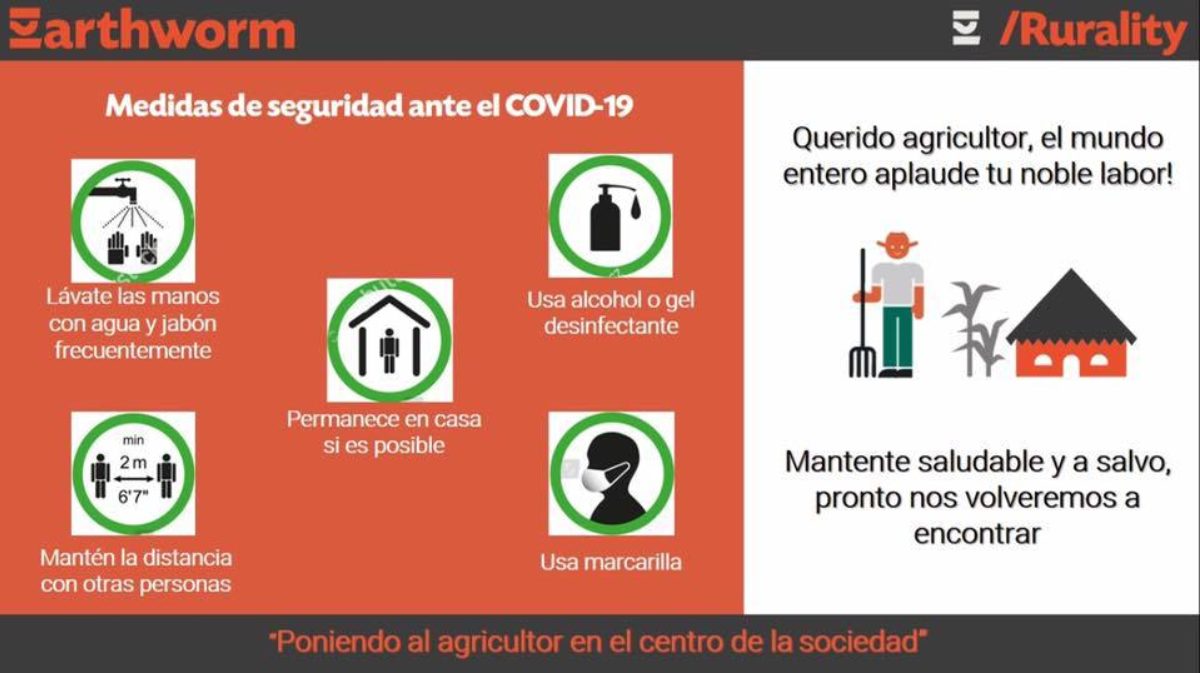
Over in Ecuador, the team is helping farmers apply for credit from banks to replant their oil palm trees, Vaca said. Of late, many farmers in Ecuador have lost their palm crops to a disease called Bud Rot, which has no cure.
“Farmers don’t have the cash to invest in replacing their crops,” he said. “In this case, public banks are offering farmers a credit line and a company has agreed to facilitate credit processes.”
The team is also producing leaflets and posters to keep in touch with farmers and keep them informed, said Andrea Ayala from the team in Ecuador.
“We’ll be making posters on technical topics about palm oil, sustainability, farm plans and family economy; and sharing these through WhatsApp,” she said.
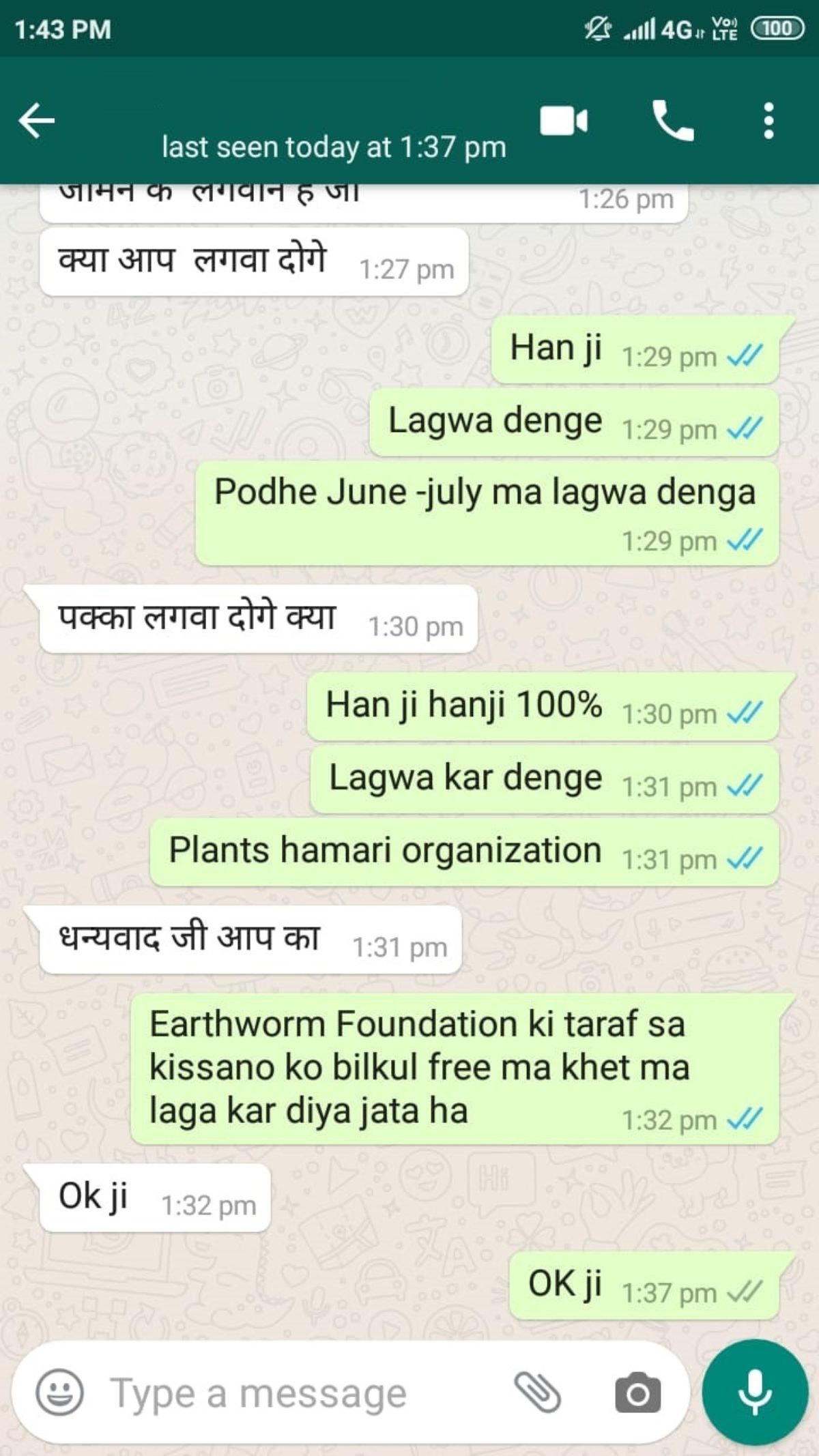
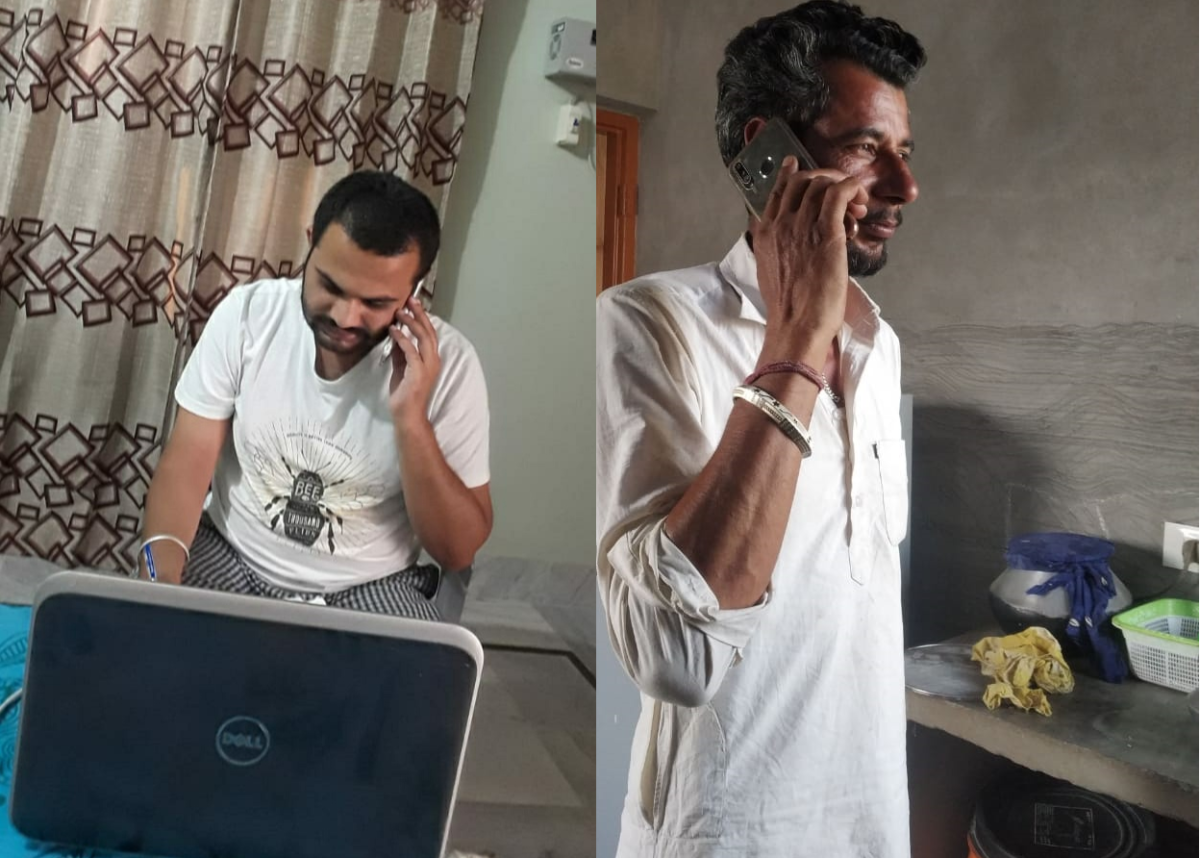
India
‘’The coronavirus has crashed the economy of country, which will badly impact the life of common Indian farmer,’’ said farmer Narender Saharan.
Farmers we work with in Punjab and Haryana are struggling to sell their produce during the lockdown imposed by the Indian government, said Earthworm’s Gaurav Kaushik. Harvesting is also challenging with social distancing.
In the upcoming sowing season, farmers are worried about the costs, he said. As earning wasn’t much with previous wheat and mustard harvests, we are figuring out how to support them in the upcoming season, when they will plant rice and cotton.
“Due to the coronavirus, wheat and mustard sales are affected,” said farmer Bansi Lal. “This also will affect the next sowing season.”
Having sold his wheat crops 10 days ago, he still hasn’t received payment, said Lalchand.
“Normally, I would be paid in two or three days,” he said.
Since they cannot visit farmers personally, the team in India is calling and messaging about 30 farmers daily; answering their questions and doing surveys to find out the impact of COVID-19 and how best to help them. They are also sharing knowledge on plantation management, precautions to be taken during COVID-19 and guidelines issued by authorities.
In many ways, this is a learning phase of us too, said Earthworm’s Geeta Yadav
“We learn more in crisis than in comfort,” said Ramchandra Phadke from our field team in India. “Resilience, hope and compassion are the need of time.”
Ivory Coast
Like other parts of the world, our teams in Ivory Coast are experiencing the pangs of COVID-19. Field activities in Soubré have stopped until June and teams in Abidjan – the epicenter of the virus in Ivory Coast – have decided to work from home. In-person meetings have been replaced by Skype, so that we stay connected to each other.
In Soubré, where our farmer work is concentrated, there has been one COVID-19 case to date. The quarantine and gasoline shortages are affecting farmers’ access to markets, meaning less income. But farmers are still striving to survive by finding alternative income and starting tree nurseries.
“We are now analyzing data about the impact of our field activities,” said Stéphane Yoboué from our field team. “However, farmers phone us when they have a concern. We try to fix their problems through the phone.”
We are also trying to stay connected with our partners on the ground through a WhatsApp group, said Eléonore N’Gbesso, who leads the farmer work in Ivory Coast. This group includes palm oil company staff, farmer cooperative managers, field officers and farmers.
“The idea is to keep in touch and share information with all the supply chain actors,” she said.
We are also exploring ways to launch a WhatsApp radio station, said Gerome Tokpa, our country head in Ivory Coast.
“Through this, we can share audio clips or publish short videos on social media,” he said. “It also allows us to produce content that is easily downloadable and can reach many rural people.”


Vietnam
Cases in Vietnam have been fairly limited thanks to early and drastic measures taken by the government in February. In fact, an entire commune of 20,000 people was quarantined at the beginning of the outbreak. But such measures seem to be working, with cases numbering in the hundreds nationwide. Social distancing measures have been relaxed since April 23, with businesses and public transport services resuming.
In Binh Thuan province where we work, one of our field officers has travelled 400 km north to get home to his family before provincial borders closed. The other – Do Viet Hung, who lives in Son My commune, Binh Thuan – continues to work from our field office.
Limits on group gatherings mean that when Hung meets farmers, it happens one-on-one while practicing social distancing. While visiting farms, Hung has been inspecting riparian zones – areas bordering water bodies such as rivers. He has also been gathering information on whether farmers are interested in planting native trees in these areas. Using this information, Hung plans to apply for a tree-planting grant for interested farmers.
Along with helping farmers individually, our field team has formed a farmer group. This group has been helping distribute resources like factsheets to farmers, preparing them for the upcoming planting season with information on how to prepare their land and select seedlings.
Since the coronavirus outbreak, Hung and the team have helped farmers order 97,000 hybrid acacia seedlings for the upcoming planting season in June. It’s essential that orders are placed early, as nurseries need three months to produce the seedlings. These hybrid seedlings are more expensive, but they increase income long-term because of a 20 percent increase in yield.
“I am thankful for the support with seedling orders and raising awareness during COVID-19,” said Nguyen Cong My, leader of the Son My farmer group.
